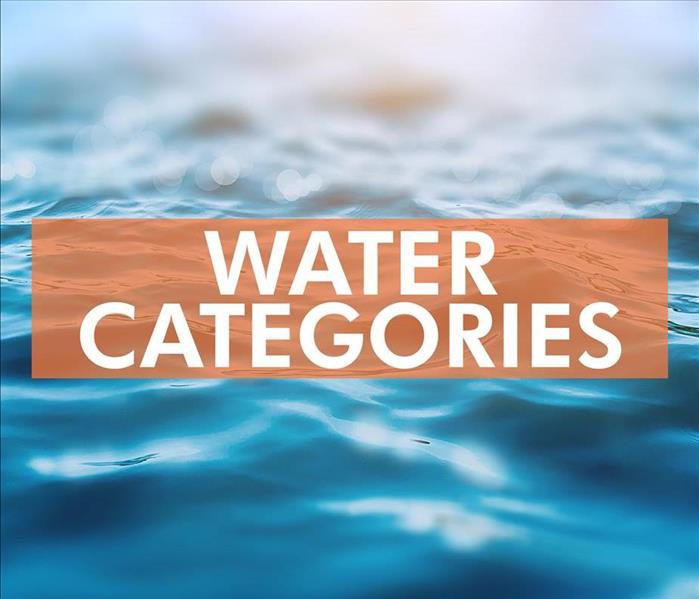What Are the Three Types of Contaminated Water?
11/5/2022 (Permalink)
Water Categories
While water is essential for life, contaminated water can often pose major problems in the wake of a disaster. When there's a problem with your water, what do you do? Knowing the types of contamination can help guide your next steps in dealing with unsafe drinking water.
In the restoration industry, water is classified into three categories:
The three categories are:
- Category 1 (clean water): This type of water is typically the safest. It typically comes from a local municipality and has not been treated. The quality will vary depending on where you live and what type of treatment your municipality provides for its residents.
- Category 2 (contaminated): This can include rainwater that enters through a roof or window, flood waters from rivers or streams, septic tanks or wastewater systems that have been damaged by flooding, etc. These sources may contain chemicals from industry or agriculture that could be harmful to humans if ingested over time in large amounts (or long-term exposure).
- Category 3 (sewer or outside flood): Sewers are manmade channels used to carry away waste materials such as feces, so they do not pollute drinking water sources such as lakes/rivers/streams, etc. However, water within these systems is extremely contaminated.
Category 1 water, or clean water.
This category of water includes water from burst pipes, broken supply lines and other similar sources. The main difference between Category 1 and Category 2 is that the former has very few microorganisms in it. That’s right! It’s safe to drink.
If you find yourself in this situation, use common sense to determine its safety: if there is any discoloration, smell, visible particles floating around, do not drink it.
Category 2 water, also known as gray water.
Category 2 water, also known as gray water. This type of contaminated water can contain microorganisms and other contaminants that make it a health risk. It typically comes from toilet bowls, aquariums or washing machine overflows. Gray water may also come from burst pipes, broken supply lines and other similar sources.
Category 3, also known as black water
Black water is highly contaminated with bacteria and microorganisms. It comes from sewage lines, floods and any source that has been in contact with human waste. Black water is the most dangerous type of contaminated water to encounter because it often contains harmful pathogens such as E. coli or salmonella that can cause food poisoning, diarrhea and dysentery.
Contaminated water is everywhere and can make you sick. You should always be careful when it comes to drinking water, but there are three types that you need to know about. These include chemical contaminants, biological contaminants, and radioactive substances.


 24/7 Emergency Service
24/7 Emergency Service
